INBAR set up its headquarters in Beijing
Located at No. 8, Fu Tong Dong Da Jie, Wangjing Area, Chaoyang District, Beijing is a unique green building like a giant sailboat made from bamboo and rattan. It is the Beijing International Bamboo and Rattan Tower, the headquarters building of the International Bamboo and Rattan Organization (INBAR). Its construction started in January 2000. In only three and a half years, construction of the 5000-square-meter building was completed, its ancillary work was finished and acceptance was passed. The main structure of the tower won the Beijing Structural Great Wall Cup Award.
"Government departments at different levels in Beijing all gave us support throughout the process of land acquisition, design, construction, and equipment tenders of the headquarters building, till its completion. With world-class construction quality and facilities, the Beijing International Bamboo and Rattan Tower becomes a landmark of Wangjing Area," said Jiang Zehui, Co-Chair of the Board of Trustees of International Bamboo and Rattan Organization.
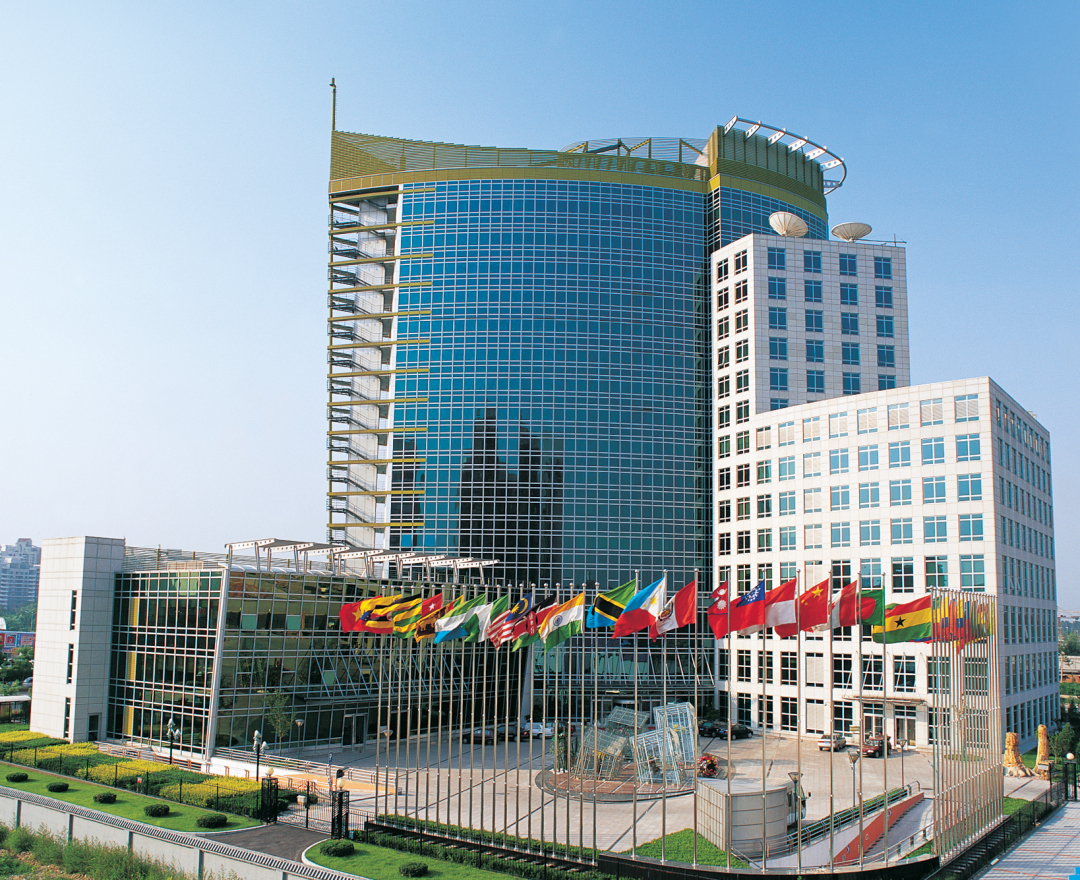
The headquarters building of the International Bamboo and Rattan Organization: Beijing International Bamboo and Rattan Tower
When asked why the organization set up its headquarters in Beijing, Li Lan, Director of the Industrial Department of the International Center for Bamboo and Rattan explained, "Bamboo and rattan are mainly grown in China's southern cities so originally it was advised that we should locate our headquarters in the south. However, we eventually chose Beijing because it could provide INBAR with a greater platform thanks to its role as the capital and a center for international exchanges. In Beijing, INBAR can exchange more easily with government agencies, embassies, and other international organizations, providing the organization more opportunities to showcase itself and increase its influence in the international community."
Locating its headquarters in Beijing proved to be a wise choice for INBAR as the organization has witnessed sound and rapid development and made extraordinary achievements since then.
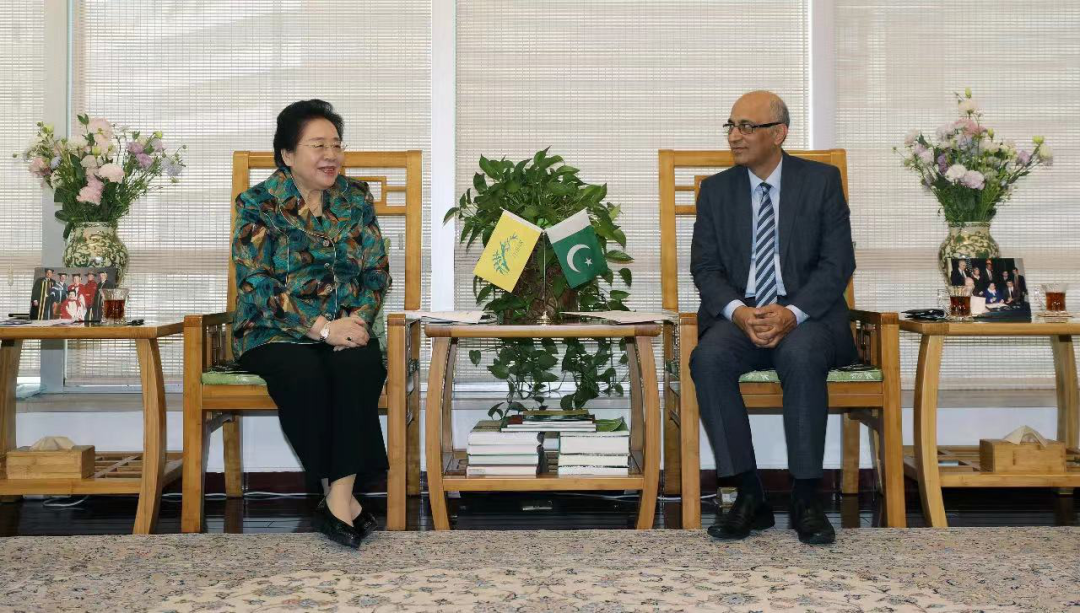
Jiang Zehui, Co-Chair of the Board of Trustees of International Bamboo and Rattan Organization meets with Moin ul Haque, Ambassador of Pakistan to China at INBAR's headquarters.
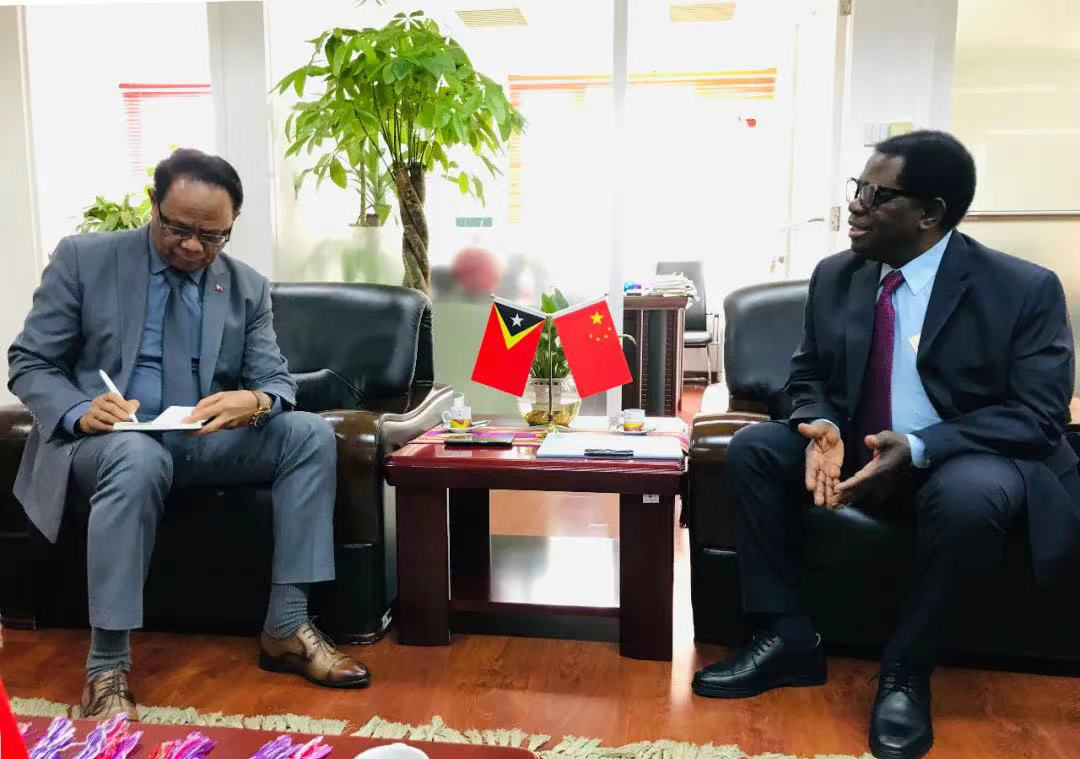
Ali Mchumo, Director General of INBAR meets with Abrao Dos Santos, Ambassador of Timor-Leste to China
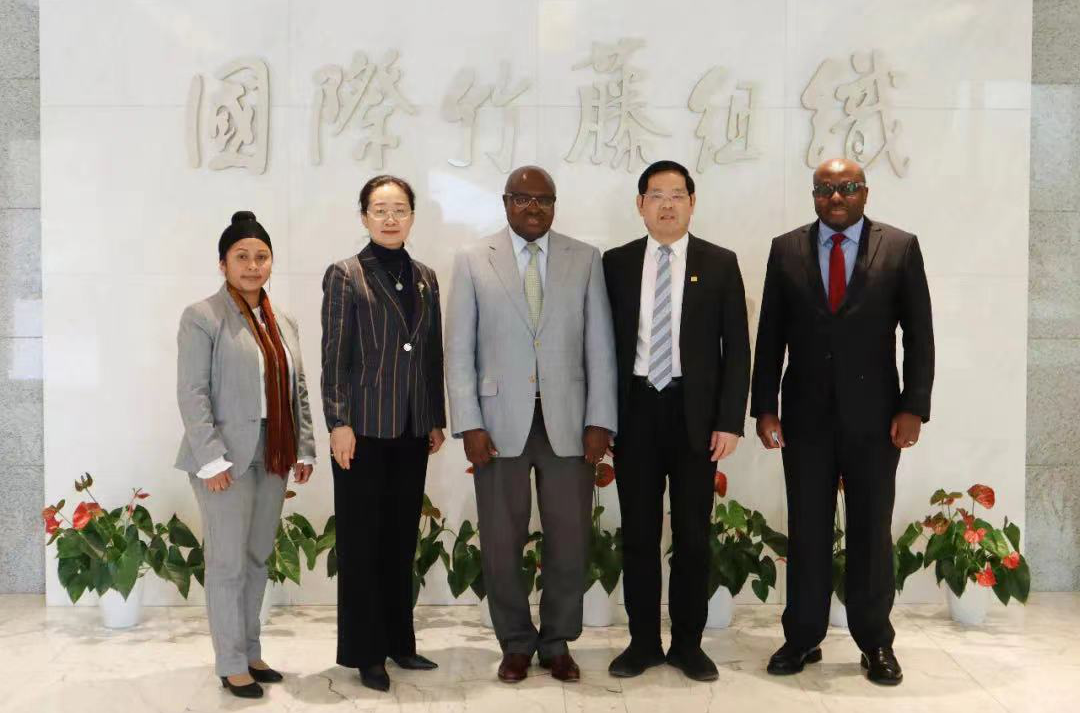
INBAR Deputy Director General Lu Wenming meets with François Nkuna Balumuene, Ambassador of the Democratic Republic of the Congo to China at INBAR's headquarters.
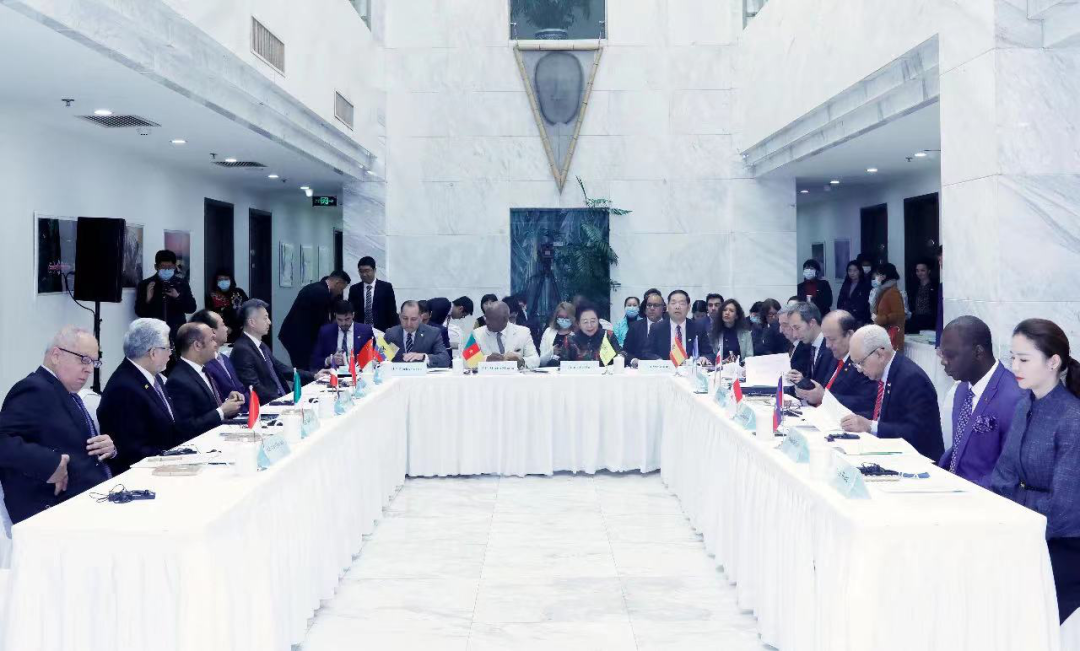
The Latin America and Caribbean Ambassadors' Dialogue Hosted by INBAR
Bamboo facilitates green development of Beijing
As non-wood forest resources, bamboo and rattan are fast-growing and versatile. With great ecological, economic and cultural value, they can play a unique role in promoting the development of green economy and addressing climate change. Since INBAR set up its headquarters in Beijing 25 years ago, it has disseminated world-class ideas of low-carbon, environmentally friendly and sustainable development in Beijing, showing the world innovative measures taken by Beijing as well as its fruitful achievements in pursuing green development.

The INBAR (International Bamboo and Rattan Organization) Garden of the 2019 Beijing International Horticultural Exhibition
At the 2019 Beijing International Horticultural Exhibition, the INBAR's "Bamboo Eye" Pavilion made from 5000 natural bamboo culms fully demonstrated the low-carbon and environmentally friendly attributes of bamboo-based building materials. As a result, the pavilion received the Grand Award in the category of International Outdoor Garden and the Award for Great Exhibition. Thanks to creative and diverse exhibits made from bamboo and rattan as well as colourful cultural activities, the INBAR Garden became one of the most popular exhibition zones. It was visited by César Litardo, President of the National Assembly of Ecuador, Mercedes Aráoz, Vice President of Peru as well as many ambassadors to China. On June 19, 2019, the Beijing Municipal Ecology and Environment Bureau and INBAR co-hosted a promotional activity on National Low Carbon Day. During the activity, experts from international organizations and research institutes put forward the Beijing Proposal on National Low Carbon Day. Using bamboo as a symbol, they share with the world Beijing's resolution to actively cope with climate change and build a green and beautiful environment.
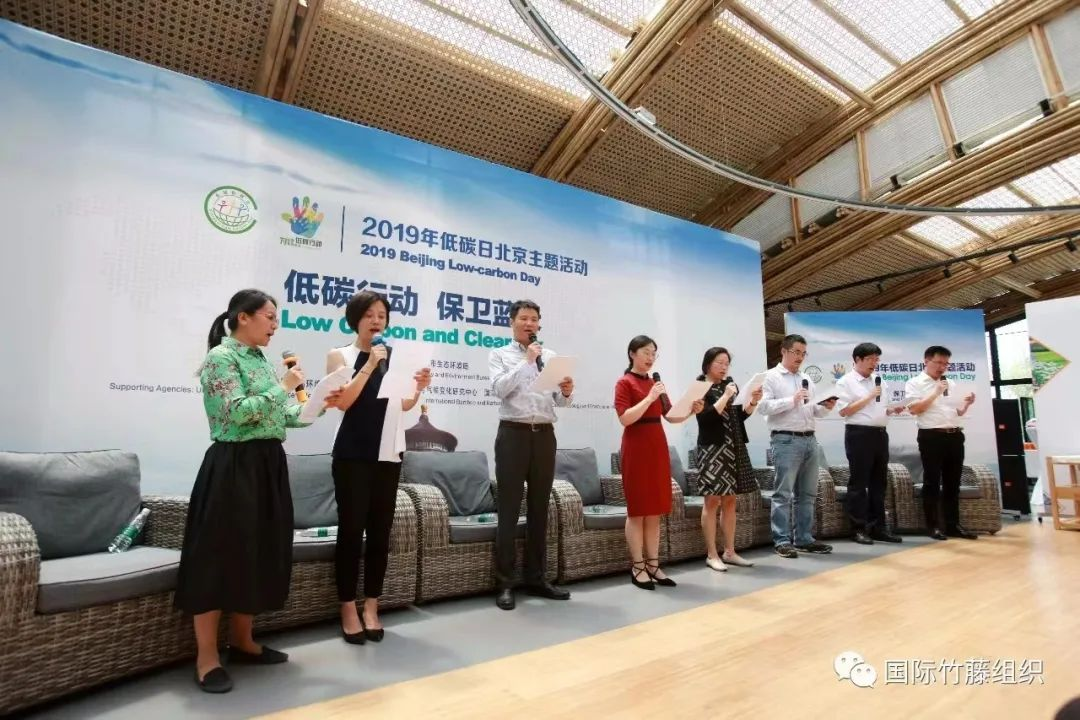
The Promotional Activity on National Low Carbon Day Held at the INBAR Garden
At the 2021 China International Fair for Trade in Services, the INBAR pavillion captured widespread attention because of its wide range of innovative bamboo products. Apart from that, INBAR hosted a significant parallel event, the International Seminar on Replacing Plastics with Bamboo. During the seminar, international and Chinese experts discussed feasible plans to replace plastics with low-carbon bamboo products and other ways to reduce energy consumption and carbon emissions both online and in person. With these plans, they aimed to help China reach carbon peak by 2030 and carbon neutrality by 2060 and promote the future development of China's bamboo industry in international trade in services.
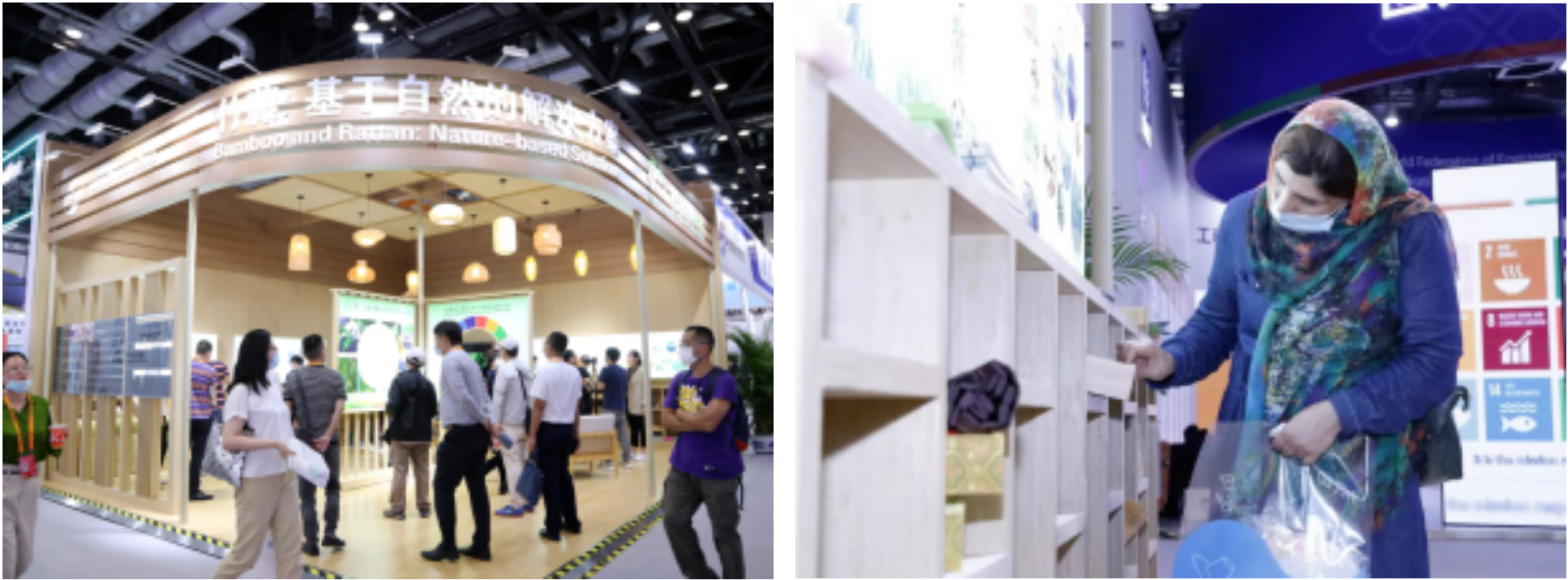
The INBAR's Exhibition Zone at the 2021 CIFTIS

The International Seminar on Replacing Plastics with Bamboo during the 2021 CIFTIS
INBAR's staff feeling at home in Beijing's communities of international talent
Wangjing Area in Chaoyang District is home to INBAR and is among the most well-known residential communities for international talent in Beijing. Many foreigners have been living there for years, making friends with their neighbours. They often participate in various cultural activities in their communities during traditional Chinese festivals.
During a celebration for the centenary of the CPC organized by Furong Community in June 2021, Leticia, a Dominican employee of INBAR Latin American performed a vibrant traditional Latin American dance, receiving thunderous applause. At the Mid-Autumn Festival, Leticia and her colleagues Zoelinoro from Madagascar and Olivier from Rwanda participated in an activity hosted by the community named Welcome Guests and Celebrate Mid-Autumn Festival Together. Together with their neighbours, these foreign staff learned how to make mooncakes in a joyful, harmonious and festive ambience.

INBAR's Foreign staff take part in the community activity.
INBAR and Beijing helped each other in trying times. After COVID-19 broke out in 2020, the organization showed strong support to China by donating 15 tons of bamboo tissue paper worth RMB 390,000 one-off to the Red Cross Society of China Beijing Branch to help the city combat the virus. Chaoyang District also took many measures to provide convenient services for INBAR staff to take PCR tests, have vaccines, and resume work and production. INBAR staff were deeply moved by the thoughtful support.
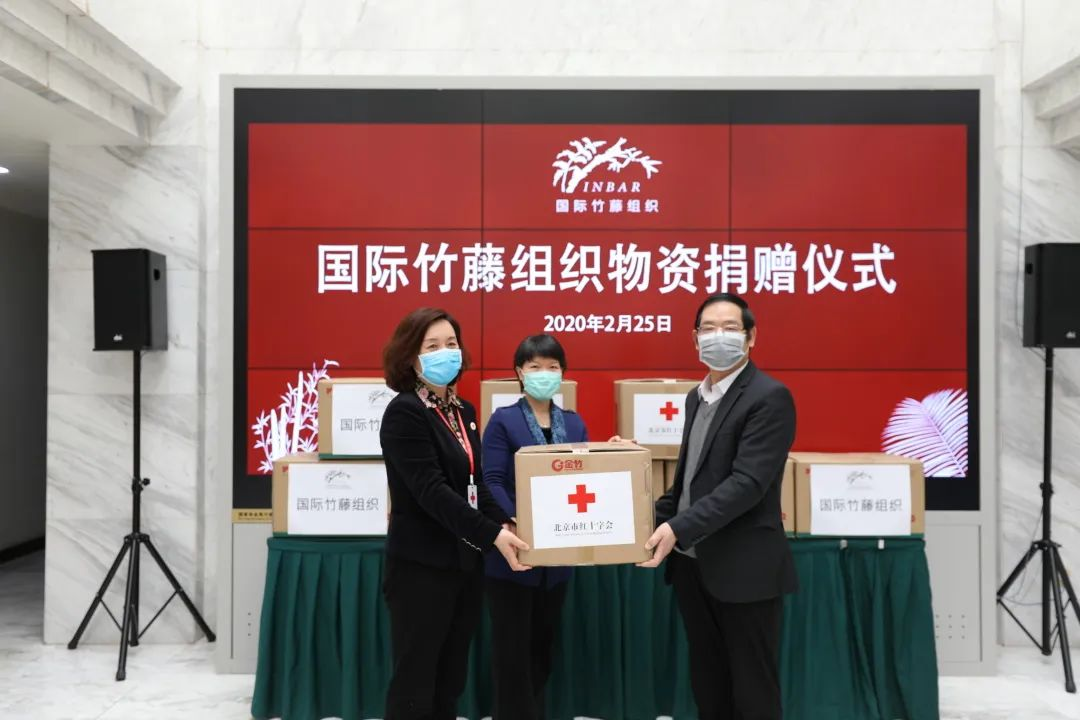
INBAR's Medical Supply Donation Ceremony
After 25 years of extraordinary cooperation, the relationship between INBAR and Beijing is like a growing bamboo, young and fresh. Going forward, the organization will continue to make new contributions to the green development of the city.
The Archives of INBAR
The International Bamboo and Rattan Organization (INBAR) is the first intergovernmental organization that set up its headquarters in China. Established in 1997, it aims to promote the green and sustainable development of the bamboo and rattan industry by researching these plants and utilizing relevant resources. Currently, it has 48 Member States and five "Observers" across Africa, Asia, the Americas and Oceania. In addition, it has five Regional Offices in Yaoundé, Cameroon; Quito, Ecuador; Addis Ababa, Ethiopia; Kumasi, Ghana and New Delhi, India.
(Source: Beijing Foreign Affairs Office, International Bamboo and Rattan Organization, Chaoyang District, Xinhua News Agency, Beijing Daily)


